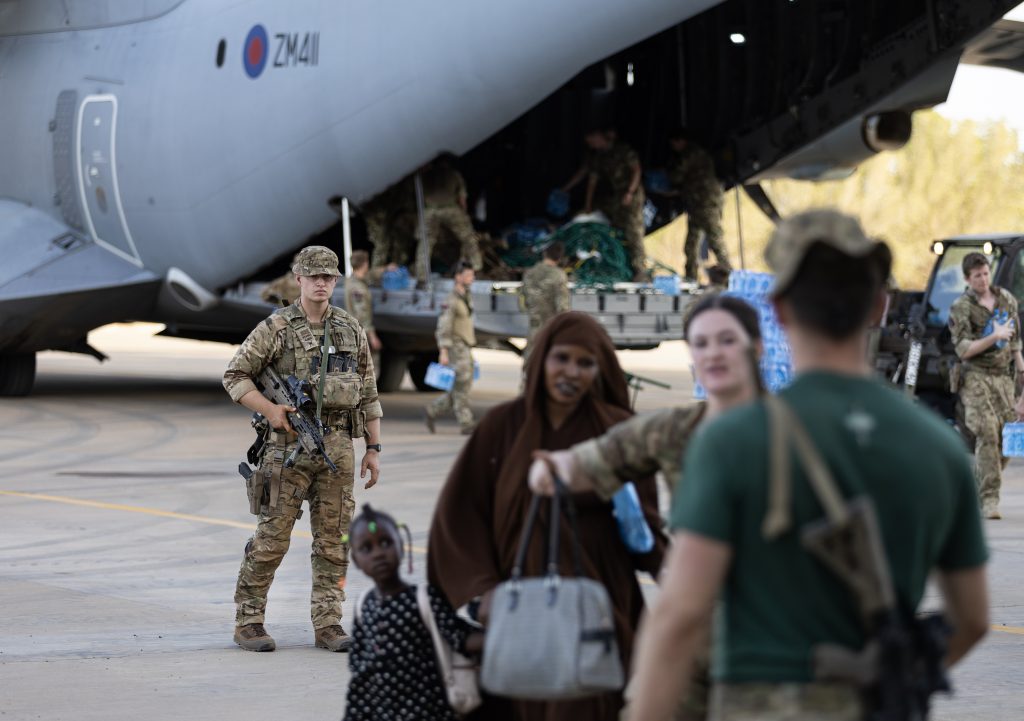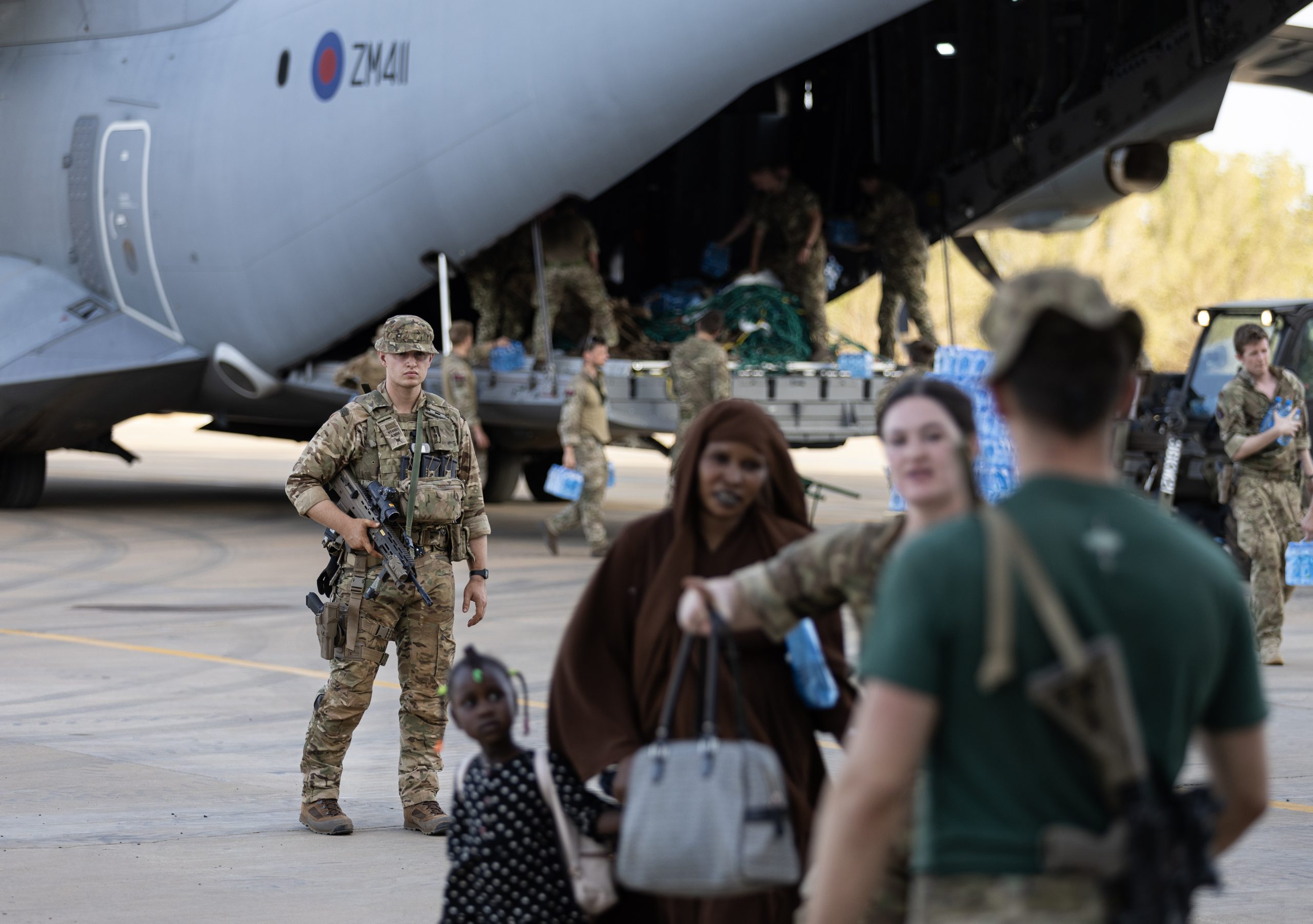Royal Navy, Army, and RAF handed international evacuation operations back to Sudanese authorities after leaving the airfield in good order.

The UK government assisted by the British Military has evacuated British Citizens from Sudan.
RAF flights are continuing between Wadi Seidna airport in Sudan to Larnaca International Airport, following three evacuation flights that took place late overnight between Tuesday 25 April and Wednesday 26 April.
The Ministry of Defence has been working to support the Foreign, Commonwealth & Development Office in evacuating civilian UK nationals from the airport.
The operation involved more than 1,200 personnel from 16 Air Assault Brigade, the Royal Marines and the Royal Air Force.Image Crown Copyright 2023 Sgt Paul Oldfield (RAF).
The UK military’s evacuation Joint Task Force has handed over the coordination of evacuation operations at Wadi Seidna airfield to Sudanese authorities, after more than 20 evacuation flights.
The airfield, located to the north of Khartoum, had been the UK’s primary location for evacuating UK nationals and their dependents, with further flights continuing on Monday from Port Sudan.
 |
Get weekly jobs and transition advice. Unsubscribe anytime. |
While the final UK flight from Wadi Seidna departed on Saturday, members of the three services of the UK Armed Forces remained on site into Sunday to ensure the airfield was left in good order.
Members of the Royal Engineers carried out urgent repairs to the runway between flights, due to deterioration of the runway surface as a result of the volume of international flights, handing it back to Sudan’s senior representative in a better condition than when the UK took over the coordination of evacuations at the airfield.
Before departing the facility for the final time, the UK’s Joint Task Force Commander held a call with his Sudanese counterpart to thank him for their close working relationship, which allowed his team to safely conduct the operation to evacuate more than 2,000 people.
Defence Secretary Ben Wallace said:
Yet again our Armed Forces are leading the way. I am extremely grateful to all our personnel, as well as the contributions of our international partners, including the US, Egypt, and Saudi Arabia, who have helped ensure the safe evacuation of more than 2,000 civilians, including those from more than 20 other nations.
The dedicated work of all those deployed on this operation at short notice has seen the biggest and longest evacuation effort from Sudan of any Western nation. First in, last out. Defence gets things done.
Significant background work was required to ensure that people fleeing the current conflict could be managed with dignity, compassion and as much comfort as was possible in such an austere and challenging environment.
Speaking after his return to the UK’s Forward Mounting Base in Cyprus, the UK ground commander at Wadi Seidna, Lt Col Oliver Denning RM, said:
I am extremely proud of each and every member of the UK Rapid Extraction Task Force, who were operating in a high-pressure environment and in austere conditions, amid temperatures of more than 45 Celsius.
Personnel from all Services – in support of FCDO and Home Office colleagues – demonstrated an extraordinary level of compassion and care to enable the extraction of personnel aged between 5 days and 92 years, and of more than 20 different nationalities”.
As well as ensuring the evacuees were protected and had access to food, water and shelter, UK civilian and military personnel at the evacuation facility also distributed children’s toys, comforts and sanitary products.
The airfield underwent the first operational runway repair conducted by British forces since the Falklands conflict in 1982, and the mobile medical facility provided care to 130 people, including life-saving surgical interventions.
Major Mark Borley, Commanding Officer of 51 Parachute Squadron RE, said:
The works to the runway were conducted at night and in challenging conditions, but the team’s work provided a real boost to military aircrew confidence when landing, allowing our aircraft to operate safely and get vulnerable people to safety.
The work was hot and demanding. But fulfilling a role which for which we train hard alongside a significant number of other stakeholders was incredibly rewarding, particularly on operations and in support of vulnerable people. I am extremely proud of the team; their determination and professionalism was superb and their success has made a real difference.
HMS Lancaster remains docked in Port Sudan, where her crew continue to provide support to evacuees and officials.

